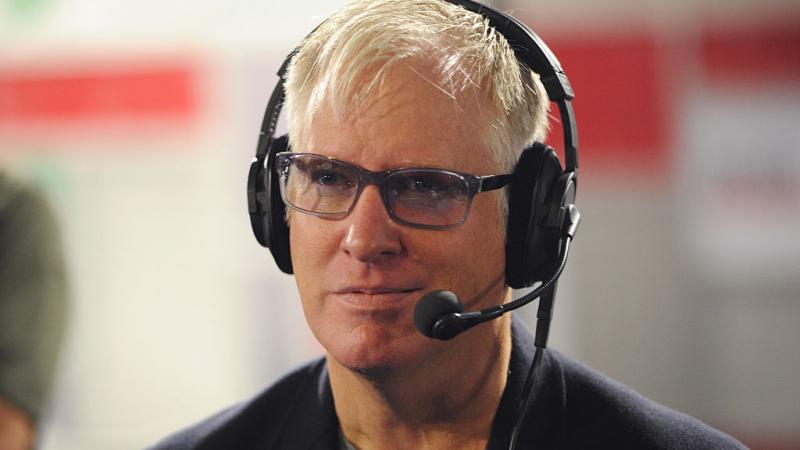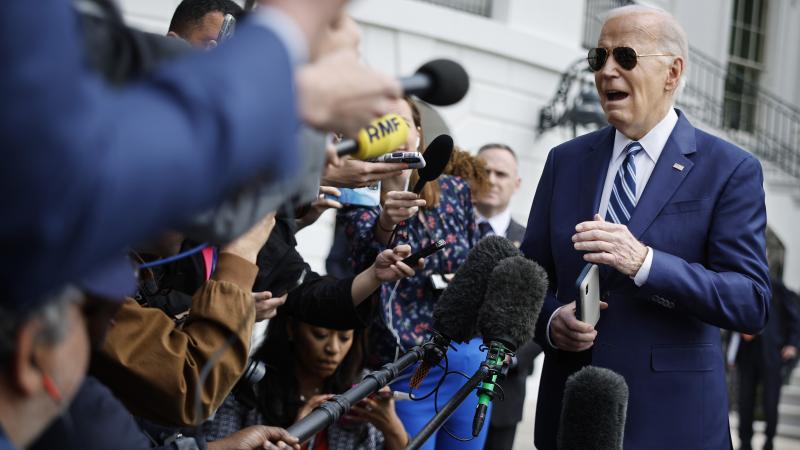Medical journal retracts hydroxychloroquine study that led WHO to halt drug trials
The authors 'can no longer vouch for the veracity of the primary data sources'
A major medical magazine has retracted a study it published that claimed to have found increased mortality in coronavirus patients who took the drug hydroxychloroquine.
The Lancet issued the retraction Thursday afternoon after successive days of questions regarding the study and the data underpinning it, both of which came from the medical analytics company Surgisphere.
That study, published on May 22, determined that hydroxychloroquine – a drug repeatedly touted by President Trump as a possible viable treatment for the coronavirus – was "associated with an increased risk of in-hospital mortality" when given to COVID-19 patients. Those conclusions so alarmed the World Health Organization that it announced at the end of last month that it would be pausing its own hydroxychloroquine trials "while the data is reviewed by the Data Safety Monitoring Board."
Yet on Thursday, The Lancet issued a notice that "three of the authors of the paper ... have retracted their study. They were unable to complete an independent audit of the data underpinning their analysis. As a result, they have concluded that they 'can no longer vouch for the veracity of the primary data sources'."
"The Lancet takes issues of scientific integrity extremely seriously," the magazine said, "and there are many outstanding questions about Surgisphere and the data that was allegedly included in this study."
The magazine called for "institutional reviews of Surgisphere’s research collaborations are urgently needed."
'A study out of thin air'
A total of 9,273 patients in the Lancet study received some form of hydroxychloroquine treatment. Patients given that drug, the study concluded, were also more likely to experience "de-novo ventricular arrhythmia," a condition in which the heart beats irregularly.
Barely a week after that announcement, serious questions are beginning to arise surrounding the study by Surgisphere. The World Health Organization has since resumed its hydroxychloroquine trials. The Lancet and the New England Journal of Medicine, meanwhile, have both signaled concerns over Surgisphere's data and analytical methods.
A breakdown of the alleged problems surrounding the Surgisphere study — as well as questions regarding the company itself — was published late last month by medical student James Todaro at his website "Medicine (Un)Censored," an aggregator of COVID-19 news that heavily touts the purported benefits of hydroxychloroquine in treating the disease.
Todaro wrote on the website that the Surgisphere study had numerous data issues, including overcounting COVID-19 deaths on the Australian continent as well as the study's claim that it included in its dataset nearly every single hospitalized COVID-19 patient in North America. The study also "reports patient data from Africa that requires sophisticated patient monitoring technology and electronic medical record systems," factors Todaro clams are unlikely to be present in sufficiently high numbers in many African hospitals.
The company also appears to have a largely nonexistent Internet history, its website having been "excluded" from the Internet archiving service WayBack Machine. Todaro found last month that the company's LinkedIn page listed only five employees, most of which began working there just in the last several months. (As of Wednesday evening, the company's LinkedIn page lists only four employees.)
Papers signal possible errors with data
Todaro, who did not respond to a query on Wednesday, published his findings on May 29. A few days later, on June 2, the New England Journal of Medicine posted an "expression of concern" on its website regarding a recent article on hydroxychloroquine that had utilized data from Surgisphere.
"This retrospective study used data drawn from an international database that included electronic health records from 169 hospitals on three continents," the expression reads. "Recently, substantive concerns have been raised about the quality of the information in that database."
"We have asked the authors to provide evidence that the data are reliable. In the interim and for the benefit of our readers, we are publishing this Expression of Concern about the reliability of their conclusions."
On the same day, the Lancet published its own expression of concern in which the journal said that "important scientific questions have been raised" regarding the validity of Surgisphere's data.
"Although an independent audit of the provenance and validity of the data has been commissioned by the authors not affiliated with Surgisphere and is ongoing, with results expected very shortly, we are issuing an Expression of Concern to alert readers to the fact that serious scientific questions have been brought to our attention," the journal wrote, promising to "update this notice as soon as we have further information."
Surgisphere did not respond to a query on Wednesday afternoon. But the company on its website has attempted to address some of the concerns surrounding the allegations of possible errors in its dataset.
"Mandatory audits [of the company] happen at least four times a year, and everything from data acquisition to data reporting is independently reviewed by an external third-party auditor," the organization said in a "follow up" to the paper. It added, however, that "as with most corporations, the access to individual hospital data is strictly governed. Our data use agreements do not allow us to make this data public."
In another post subsequent to the "follow up," the company said it had issued two minor "clarifications" for the study published in the Lancet. Surgisphere has also commissioned an "independent academic audit" and said that it is "working as quickly and carefully as we can through the inquiries we have received from the scientific community and from the media to ensure all receive responses that satisfy their needs."
"Together, we stand behind the integrity of our studies and our scientific researchers, clinical partners, and data analysts," the update said.
The Facts Inside Our Reporter's Notebook
Links
- Surgisphere's hydroxychloroquine study
- The World Health Organization's announcement
- James Todaro's report on the Surgisphere study
- Surgisphere's LinkedIn page
- The "expression of concern" from the New England Journal of Medicine
- The "expression of concern" from the Lancet
- Surgisphere's "follow up" to the Lancet paper
- Surgisphere's response to mounting questions
















